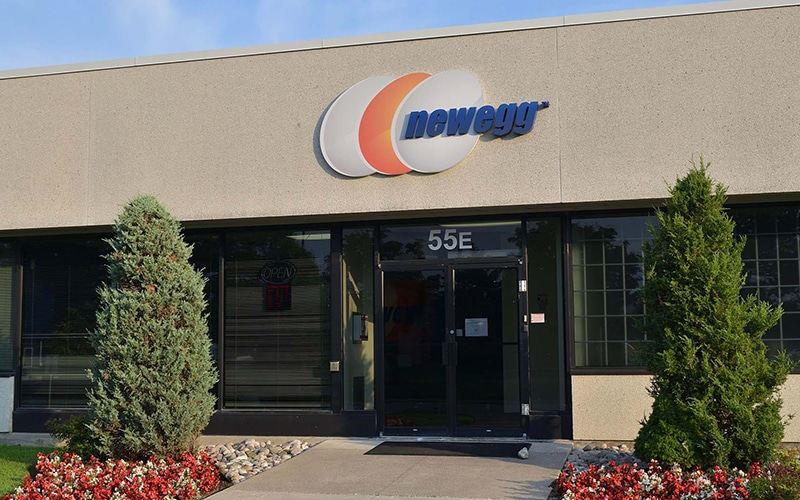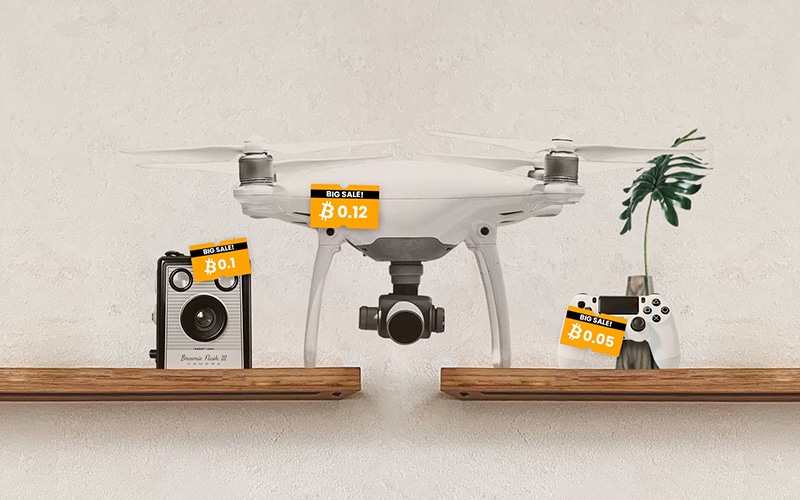One fateful decade ago, commercial crypto adoption took a giant leap forward with the announcement that Newegg, a primary online PC parts seller and distributor, would accept Bitcoin as payment.
At this point, the consumer electronics market was already shaken up by more advanced generations of touchscreen devices, which tremendously contributed to the growth of currency circulation. However, with cryptocurrency added, we have yet another huge economic frontier for which popular hardware products can be sold and bought.
This development is a simple necessity of innovation, more so since we saw a fast development on the software side of things, where online gaming witnessed rapid market adoption as soon as there was a spotlight on the benefits that crypto-payment brought in. But as we shall see in the present day, there are also a of technical benefits that allow room for the growth of this tech sector each year.
Incentives of Accepting Bitcoin
The first and primary incentive for a consumer electronics store to accept Bitcoin is to be free from traditional banking systems, which are still largely ‘limited’ by the stability of the US dollar. Bitcoin is not only decentralized as a currency, but tech stores accepting it can also easily tap into a global customer base without currency conversions or international transaction fees.
Other advantages related to this are the following:
Marketing Appeal and Differentiation – During its early adoption, and as of now at least, accepting Bitcoin for payment is a way to promote a forward-thinking attitude. During Newegg’s huge crypto-update announcement in 2013-2014, the store launched a broad promotional campaign to essentially put the cryptocurrency up front and center to its advancement policies.
Increased Security and Reduced Fraud – By accepting Bitcoin, the tech store seller also significantly reduces the risk of chargeback fraud and prevents transaction alterations. This was an especially sensitive issue to PC hardware and advanced electronic devices. Midrange to high-end builds could cost up to thousands of dollars, and even a single graphics card could cost at least $300 to $500 in a single purchase.
Future-Proofing – Then there is also the not-so-minor advantage of keeping an advanced, modern type of currency and payment method just in case financial trends go with cryptocurrency later down the line. During the 2010s, it was basically a race to see who would set a stable foothold in this financial frontier, with Overstock.com and Newegg leading the way for tech stores.
Lastly, Bitcoin just adds to the pool of available payment choices, which inherently adds flexibility to the tech store in question.
Also Read: Bitcoin for E-commerce: The Future of Online Payments
Impact on Stores and Considerations
While the adoption of cryptocurrencies by tech stores was largely viewed as a forward-thinking strategy, the attitude towards such implementation actually changed over time. The benefits that we listed earlier are indeed true, and there have been numerous examples of them. But there were also several compromises.
Price volatility and fraud that come from within the system itself (corruption) can affect online businesses very wildly, depending on how they are structured.
In fact, instability issues concerned Microsoft so much that it temporarily halted Bitcoin transactions for a week. The decision was initially intended as a permanent move until the tech giant turned around and simply added a few more technical restrictions later.
Types of Bitcoin Payment Options for Tech Stores
Build from scratch – the tech store simply adds Bitcoin as part of its integral banking system, which allows for direct transactions. It is conceptually straightforward, but since the store has to design the payment flow from scratch, future technical issues may be more challenging (or might take longer) to solve.
Third-party processors – a much safer approach, relegating most of the transactions to a speciality third party that could focus simply on transferring money. System integration could initially pose a few minor problems, but the stability pros usually far outweigh the management cons.
Decentralized platforms – in a nutshell, these are “pre-made” decentralized platforms that allow the business to use an existing online infrastructure to let customers pay directly from their crypto wallets, such as BTCPay Server. It’s quite safer than building from scratch, but the tech store can only gain access to features and other quirks available to that specific platform.
Other “third party” sources – completely separate stores that sell QR codes and gift cards via Bitcoin are also technically accepted as a payment category, albeit quite indirect.
Specimen 01: Newegg (PC Parts and Electronics Hardware)

Newegg began its history with Bitcoin quite early with its adoption in 2014. As mentioned earlier, it was primarily used to gain marketing hype, presenting itself as a forward-thinking retailer with access to what could be the future of online transactions. Its current crypto payment system falls largely into its partnership with BitPay, which handles the technical infrastructure necessary to allow the exchange between Bitcoin and traditional fiat currencies.
Method of Bitcoin Payment: Customers who want to pay with Bitcoin could simply select the option during any checkout process. BitPay will then generate a unique QR code and Bitcoin address for the transaction.
Service Summary:
- Direct Bitcoin transactions
- Fiat currency conversion
- There is no limit on which items can be paid with Bitcoin
- As of 2023, Newegg also accepts 14 other cryptocurrencies, including Dogecoin.
Specimen 02: Microsoft (Software and Service Solutions)
Going with the rush to accept cryptocurrencies as payment options, the well-known tech giant also started accepting Bitcoin in 2014. It even started experimenting with blockchain technologies, launching Azure Blockchain Service in 2015. However, in 2018, the company temporarily halted this service, although the decision was reversed a week later. Today, customers from various parts of the world can purchase on Microsoft platforms without the direct need for currency conversions.
Method of Bitcoin Payment: The Microsoft Store accepts Bitcoin to add points to a user’s Microsoft account, which are then used for various content such as apps, games, multimedia, and more.
Service Summary:
- Basic Bitcoin payments on its primary online platform
- Blockchain technology solutions
- Enterprise-level pre-configured blockchain networks
Specimen 03: Maingear (Prebuilt Computers)
For tech stores with more niche specializations, Maingear is one of the numerous examples in the realm of third-party PC selling. As such, the whole infrastructure of a pre-built PC business is included, and therefore, the crypto payment also provides service and maintenance fees. The caveat, however, is that there is no integrated online system to facilitate payments like in Newegg. You have to discuss the option with the store’s management directly for them to accommodate the best Bitcoin payment option for you.
Method of Bitcoin Payment: Contact the store directly. The payment discussion would then be forwarded to the sales team, who would negotiate a direct transaction deal between you and the store itself.
Service Summary:
- Accepting Bitcoin payments as a private transaction or deal
Also Read: How to Use Bitcoin For Online Payments
What About Other Currencies?
Even if the adoption of cryptocurrencies by tech stores did not turn as prevalent as it should have, those that did accept Bitcoin eventually branched out to other stable cryptocurrencies. Ethereum was the next big cryptocurrency to gain acceptance by official tech stores. While not due to direct transactions, it was in fact, the currency instrumental in causing the GPU crisis of 2020-2022.
Some tech stores even venture out further to accept weirder cryptocurrencies. Years ago, the pre-built PC store Xidax started accepting Dogecoin. It was not just for the memes, but the boutique PC builder actually expected a revenue increase for such a move at that time. Which it did for a while, at least, before the store went back to its traditional payment routes.
Conclusion:
In the modern age where technology is perpetually reshaping consumer behaviours, the meteoric rise of Bitcoin, coupled with its increasing integration into the mainstream consumer market, particularly in tech stores, isn’t just a fleeting trend. It is a clear testament to a transformative shift in the traditional paradigms of trade and commerce.
Indeed, when tech stores choose to embrace Bitcoin, they’re not simply accessing a cache of benefits for themselves but also opening up a plethora of advantages for their consumers.






